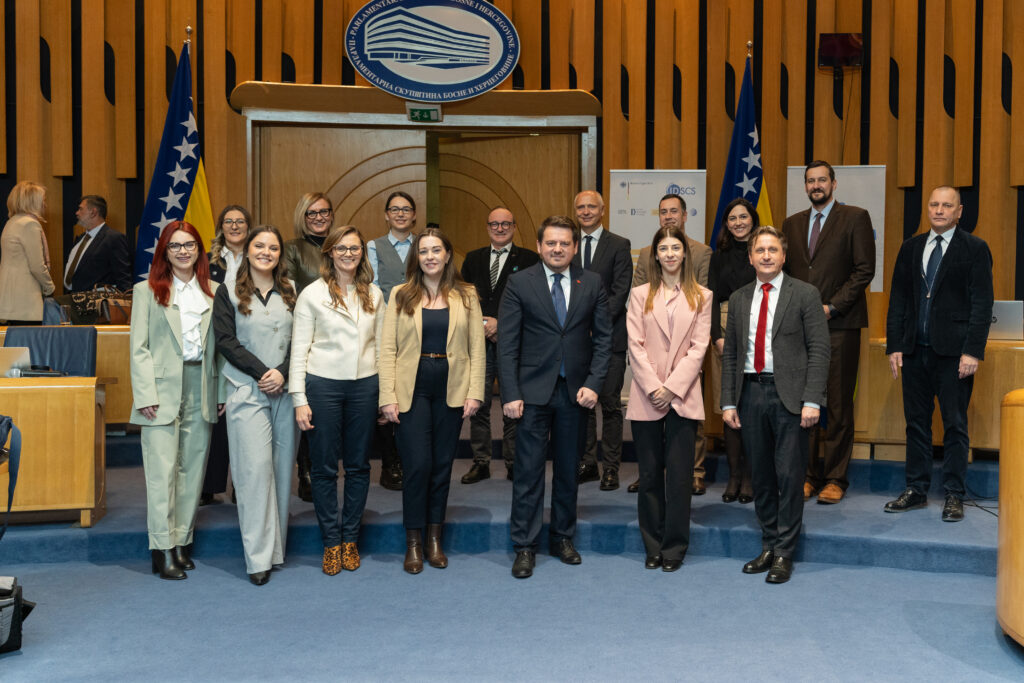On 12.12.2024, the Parliamentary Assembly of Bosnia and Herzegovina in cooperation with Network of Progressive Initiatives hosted a conference titled “A Decade of the Berlin Process: Lessons Learned and the Road Ahead,” bringing together parliamentarians from the Western Balkans, representatives of international organizations, and key stakeholders involved in regional cooperation.
In his opening remarks, Member of Parliament Jasmin Emrić highlighted the Berlin Process as a cornerstone for strengthening stability and collaboration across the region:
“This conference reaffirms that neither dialogue nor the European path has an alternative for us. We must seize this opportunity to further enhance regional cooperation and ensure that our countries become part of the single European market.”
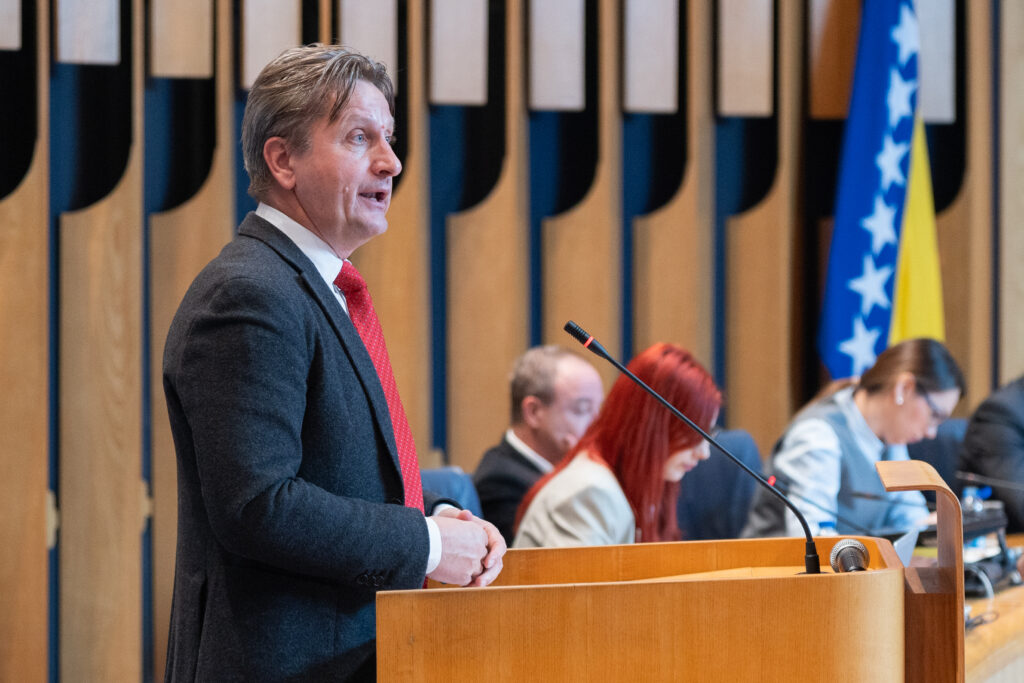
Fellow Member of Parliament Šemsudin Mehmedović emphasized the critical role of parliamentarians in shaping regional policies:
“It is our responsibility to promote democratic values and ensure transparent dialogue. This event provides a platform to reaffirm our commitment to regional cooperation and chart steps forward for advancing the Berlin Process.”
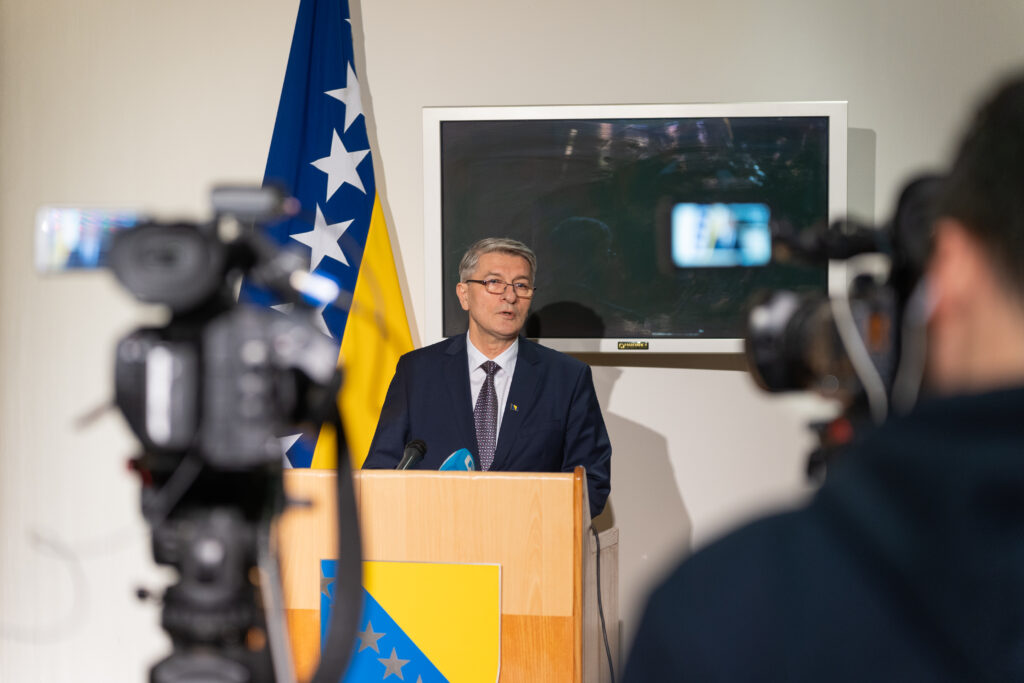
Adding to the opening remarks, Ms. Anida Šabanović, Program Manager at the Network of Progressive Initiatives BiH, reflected on the broader significance of regional parliamentary cooperation:
“Together, we have strived to elevate the role of parliamentary diplomacy as a key tool in building trust, fostering dialogue, and aligning our efforts toward shared goals.”
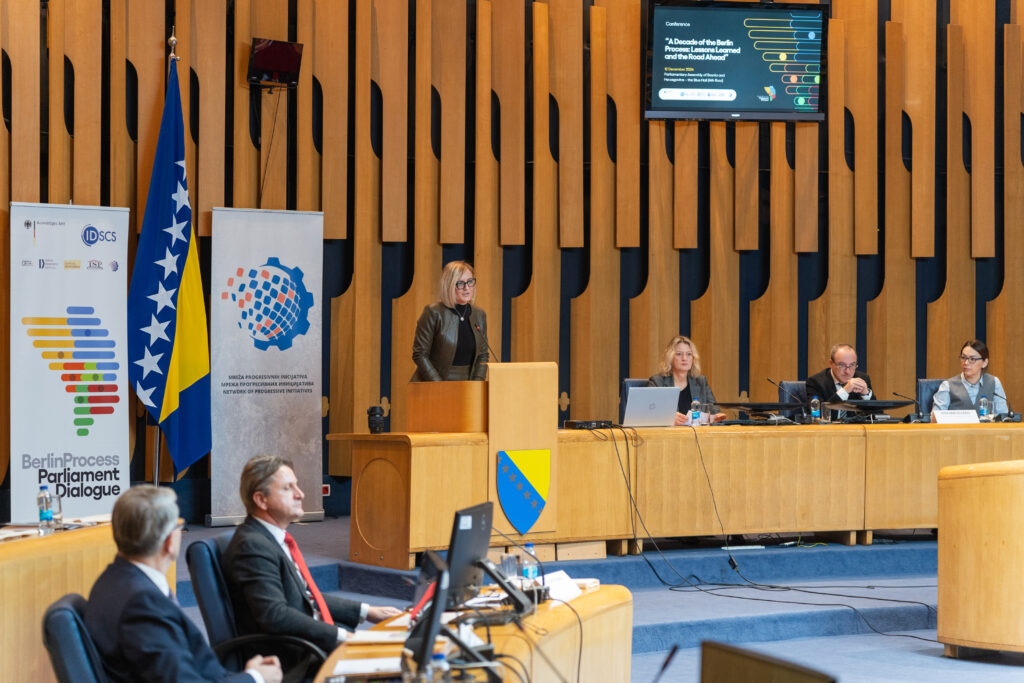
Panel Discussions on Progress and Future Priorities
Morning Session: “International Perspectives: Berlin Process Progress and Future Goals”
Key speakers included:
- Ms. Danijela Gačević, Acting Director of the CEFTA Secretariat, who emphasized the progress made under the Common Regional Market and outlined goals for enhanced trade and mobility integration.
- Mr. Amer Kapetanović, designated Secretary General of the Regional Cooperation Council (RCC), who reflected on fostering trust among regional actors and advancing the Green Agenda.
- Mr. Stefano Ellero, Head of Cooperation at the Delegation of the EU to Bosnia and Herzegovina, who stressed the EU’s commitment to supporting regional development.
Moderated by Ms. Hata Kujraković, this session tackled major achievements and persistent challenges.
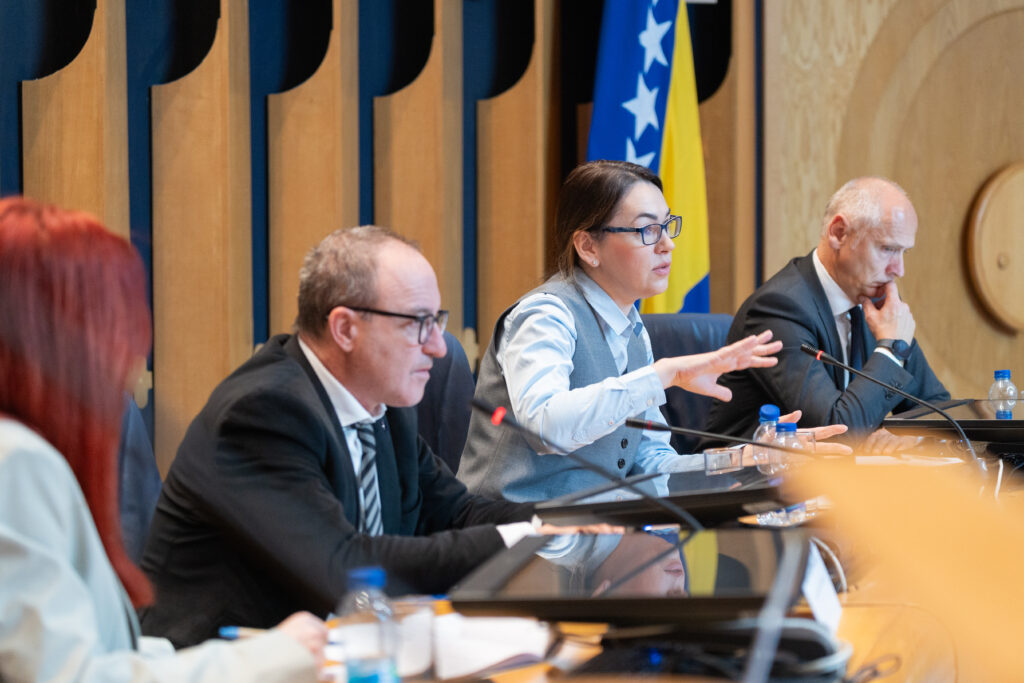
Conclusions from the First Panel:
- The Common Regional Market (CRM) has been instrumental in strengthening trade and economic cooperation in the Western Balkans. However, reducing non-tariff barriers and improving policy alignment remain priorities.
- The Green Agenda for the Western Balkans is a vital step towards climate-neutrality by 2050, but its implementation requires overcoming political fragmentation, limited resources, and insufficient investments in climate resilience.
- Enhanced collaboration with the EU, particularly through targeted funding and policy support, is essential to address integration disparities and ensure the full implementation of regional commitments like the CRM and Green Agenda.
- The RCC and CEFTA Secretariat emphasized the importance of maintaining momentum by focusing on inclusive policies that support both governments and local communities.
Afternoon Session: “Western Balkans at a Decade of the Berlin Process: Lessons Learned and Next Steps”
Parliamentarians from the Western Balkans discussed legislative reforms, trust-building initiatives, and the alignment of national priorities with EU standards. Speakers included:
- Mr. Kreshnik Çollaku, Member of Parliament, Albania
- Ms. Ermina Salkičević-Dizdarević, Member of Parliament, Bosnia and Herzegovina
- Mr. Jovan Subotić, Member of Parliament, Montenegro
- Mr. Agon Batusha, Member of Parliament, Kosovo
This session was moderated by Ms. Juljana Bilbilaj, Project Manager at the Institute for Political Studies.
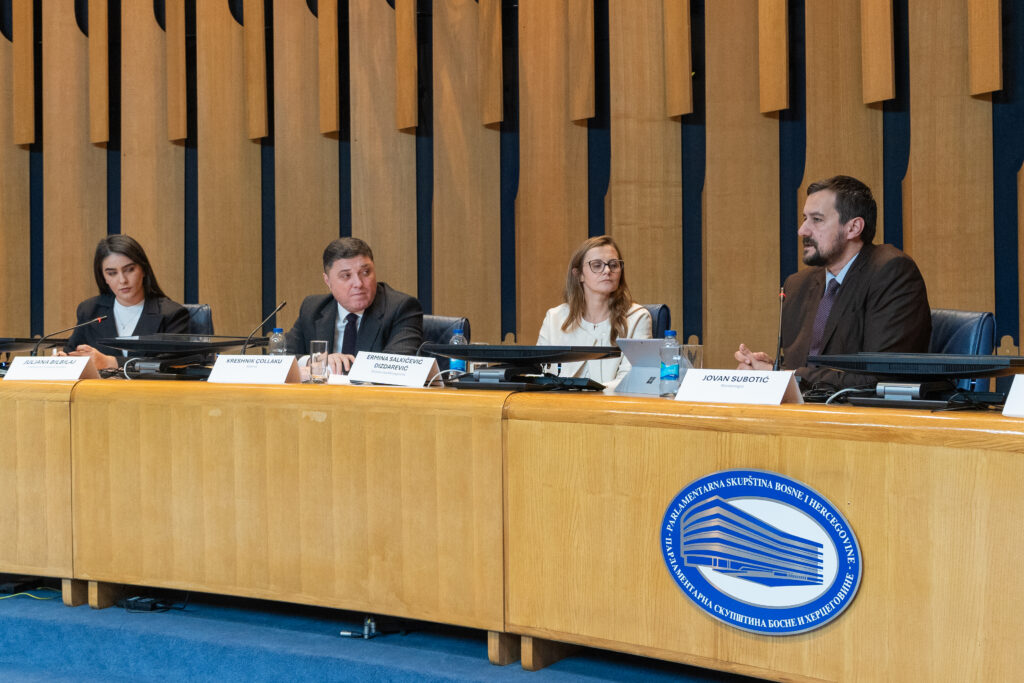
Conclusions from the Second Panel:
- Economic Integration: Panelists highlighted the critical importance of regional economic integration to enhance access to both regional and EU markets.
- SEPA System Access: Ms. Ermina Salkičević-Dizdarević emphasized the benefits of joining the Single Euro Payments Area (SEPA), which could reduce transaction costs for businesses and individuals, including the Bosnian diaspora, by up to six times. SEPA would also strengthen oversight in areas such as anti-money laundering, cash flow management, and tax evasion prevention.
- Environmental Competitiveness: Addressing the Carbon Border Adjustment Mechanism (CBAM) was identified as a pressing issue.
- Broad Benefits for Citizens: Discussions underscored that regional cooperation under the Berlin Process offers tangible benefits for citizens, from economic growth to better governance and increased mobility.
Conference Organizers and Goals
The event was organized by the Network of Progressive Initiatives in cooperation with the Institute for Democracy “Societas Civilis” and regional partners. It is part of the project “Parliamentary Diplomacy: Regional Cooperation Through Enhanced Parliamentary Dialogue,” funded by the German Federal Foreign Office.
Concluding the conference, organizers and participants expressed their hope that the outcomes would serve as a foundation for concrete steps to advance regional cooperation and the integration of the Western Balkans into the European Union.
